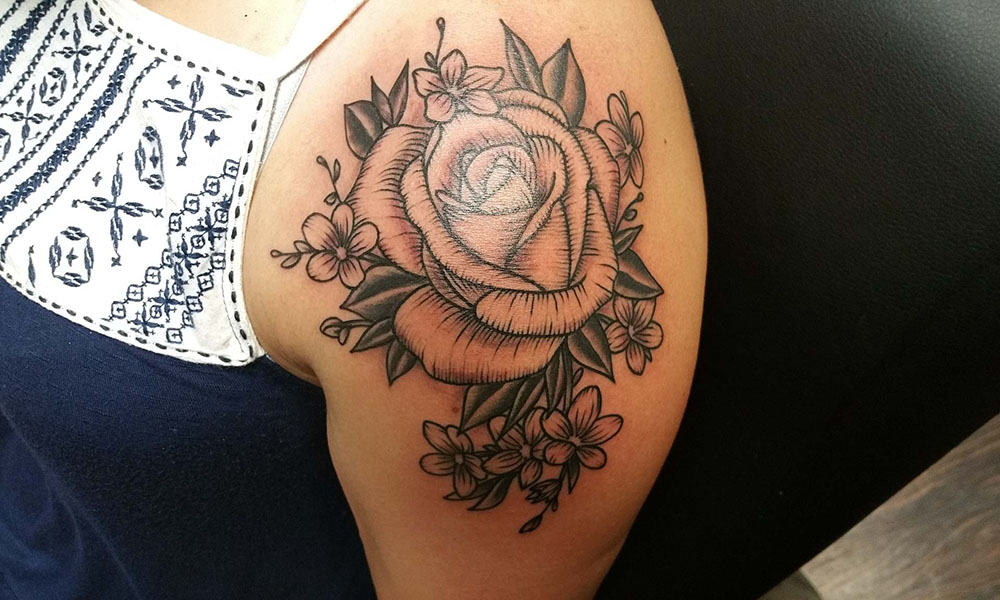
Tattoo Numbing Cream
Some Pain, All Gain: Is Tattoo Numbing Cream Worth It and Does it Work?
When you’re getting a tattoo it’s natural to be scared of the pain, but chances are it’ll be okay. Learn about tattoo numbing cream and why you don’t need it.
Getting a tattoo hurts. There’s no sugarcoating it.
If you want a tattoo, you’ll have to accept that the process will be uncomfortable.
Depending on who you talk to, you’ll get different opinions on the pain. Some people will say the pain isn’t bad, while others may describe it as the worse pain they ever experienced. This is because everyone handles pain differently.
However, there are plenty of people looking for pain-free ways to get a tattoo. One of these methods growing in popularity is tattoo numbing cream.
Some people swear it works. Others will tell you it’s a waste of time and money.
If you’re considering tattoo numbing cream for your next tattoo, you might want to think again. Find out numbing creams are worth your time and money.
What is Tattoo Numbing Cream?
In a nutshell, tattoo numbing cream is a topical cream that numbs the area of skin where it’s applied. There are different types of numbing creams with different levels of potency to make getting a tattoo less painful.
The mildest and safest of the numbing creams are “nerve deadeners.” Don’t worry, they won’t cause any damage. A common ingredient is lidocaine, which dulls discomfort on the surface of the skin.
Since this type of numbing cream doesn’t sink below the surface of the skin, it isn’t very effective for a tattoo. Most people will often mix it with other creams.
The more potent numbing creams are “nerve blockers.” Common active ingredients include tetracaine and benzocaine. They work by preventing pain signals from reaching your brain.
However, your nerves will still register pain. Even though the medication blocks the pain signals from your brain, you can still feel some discomfort. People will often mix a nerve deadener like lidocaine with a nerve blocker.
The most effective creams are “vasoconstrictors,” such as epinephrine. They constrict your blood vessels causing less bleeding and less swelling.
To make this type of numbing cream last longer, people will mix vasoconstrictors with nerve blockers or nerve deadeners. The only problem with this cream is it may affect the healing process of your tattoo.
Despite these options, there is much disagreement on whether tattoo numbing creams work.
Why People Don’t Like Tattoo Numbing Creams
Your tattoo artist probably does not like tattoo numbing creams and may refuse using them.
The main reason is tattoo numbing creams can mess up your tattoo. The cream makes your skin slippery causing the tattoo process to become more difficult. Numbing creams used after can also affect how the tattoo heals.
Many tattoo artists and tattoo enthusiasts believe the pain of a tattoo is a right of passage. The pain and irritation will make the tattoo more meaningful.
Others have experience with tattoo numbing and will tell you they just don’t work. Even if the numbing cream works in the beginning, they rarely last for the whole tattoo process.
Is it possible they used weaker numbing creams? Sure, it’s possible. But in most cases, the numbing creams won’t work as well as you hoped.
FDA Warnings
The FDA disapproves of tattoo numbing creams. The primary reason is doctors and other medical specialists should use and apply numbing creams. They know how to choose the right type of numbing cream and how to apply it.
The next issue the FDA has with numbing creams are the side-effects. There’s a risk you may experience an allergic reaction.
Leaving a numbing cream on for too long, using too much, or using the cream on damaged skin can cause the cream to enter your bloodstream. In severe cases, this can cause seizures, difficulty breathing, and comas.
If you must use a numbing cream, use only those approved by the FDA or recommended by a medical professional. Otherwise, skip them for your next tattoo.
Minimize Tattoo Pain Without Numbing Creams
Don’t worry, you can still lower the pain without resorting to tattoo numbing creams. Follow these tips and you’ll be able to tolerate the pain better than you thought.
Tip 1: Drink Plenty of Water
Before your next tattoo session, drink plenty of water. Good hydration helps with ink absorption and the healing process. Staying hydrated will also lower your chances of getting dizzy or passing out.
Tip 2: Avoid Caffeine
Unfortunately, drinking caffeine, whether it be a coffee, tea, or soda can leave you dehydrated. If possible, don’t drink any caffeine on the day of your tattoo appointment.
Tip 3: Avoid Alcohol
If you think drinking a few shots before you get your tattoo will help, think again. Alcohol causes your blood to thin which makes you bleed more during the process and affect how your skin absorbs the ink.
You also don’t want to wake up to a surprise tattoo after a long night of partying.
Tip 4: Eat a Good Meal
You don’t have to eat right before your appointment, but you’ll want a healthy meal sometime before. A healthy meal will keep your blood sugar up and help prevent you from passing out.
Tip 5: Avoid Pain Relievers
Taking pain relievers before you get your tattoo can cause blood thinning and more bleeding. If you must, wait until after you get your tattoo. Talk with your tattoo artist to find out how long to wait and what pain relievers they recommend.
Tip 6: Pick a Less Painful Area
Tattoos hurt less in some areas of your body and hurt more in other parts. When getting your first tattoo, pick a place that’s less painful such as:
-
- Shoulder
- Butt
- Arms
- Calves
- Thighs (but not the inside)
- Other fleshy or muscular areas
The more painful areas include:
-
- Wrists
- Ribs
- Knees
- Ankles
- Neck
- Other bony or areas with sensitive skin
Tip 7: Find Distractions
Often easier said than done but staying distracted will help keep your mind off the pain. Many tattoo artists are happy to talk with you to keep you distracted. In some cases, bring a book or your phone to keep your mind busy.
Ready for a Tattoo?
The pain you feel during a tattoo is only temporary. After a while, it becomes more of an annoying ache than sharp pain. If you want a quality tattoo with minimal side-effects, skip the tattoo numbing cream on your next tattoo.
Have a design in mind for your next tattoo? Let’s chat. We’ll help you find a great design and get you scheduled for your next or first tattoo.
To learn more, contact us here.

